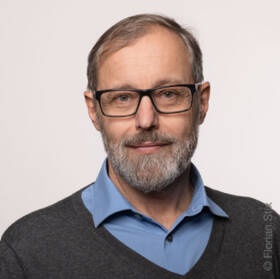An economic-sociological perspective on the careers of creatives in social media.
Background
Establishing a foothold in the cultural economy has always been difficult. Even before the rise of social media, writers, musicians, and actors had to compete with a multitude of equally ambitious peers. Income was often modest, working conditions were stressful, and a sustainable career was by no means guaranteed. The success of social media platforms such as Facebook, YouTube, Instagram, Twitch, and TikTok has further intensified this situation. The enormous competition on these platforms and opaque recommendation algorithms make it even harder for creatives to predict success of their cultural work and plan their career.
Project Outline
In the “Creator Careers” project, we examine how so-called creators on YouTube and other platforms deal with this uncertainty. We draw on insights from economic sociology research on traditional cultural industries such as the music or film industries. Research has shown that imitating legitimate role models, committing to unambiguous, clear genre categories, and building networks with other creatives play an important role in managing uncertainty. However, this has not yet been studied for the new forms of cultural production in social media.
Objectives
Among others, our project seeks to answer the following research questions:
- To what extent do creators learn from each other in coping with uncertainties?
- What role do experts, agencies, multi-channel networks, and the YouTube Creator Academy play in establishing legitimate production strategies?
- How sensible is it to switch between genres, formats, platforms, or between online and offline activities over the course of a career?
- How important are collaborations with other creators? And do newcomers or established creators benefit more from them?
- Are female creators systematically disadvantaged on social media?
Methods
With the “Creator Careers” project, we break new ground not only through a distinctly economic sociological perspective but also with an innovative research design. Data on YouTube creators is retrieved via an API (Application Programming Interface), manually enriched with additional online information, and statistically analyzed. These quantitative analyses are complemented by extensive online research, digital ethnography, and guided interviews with selected creators and experts from their professional environment. This approach provides valuable insights into the career strategies of content creators and cultural professionals who use digital platforms.
Innovation
Through this approach, we aim not only to gain a better understanding of cultural production on social media, but also to provide a scientific foundation for the development of regulatory tools for digital platforms. Additionally, the project will contribute important impulses to international theoretical debates in economic sociology and the development of new methods for empirical analysis of digital platforms.
Funding
You want to know more? Feel free to ask!
Department of Media and Digital Technologies
- Advisory Board:
- Prof. Patrik Aspers (University of St. Gallen) [Switzerland]
- Prof. Susanne Janssen (Erasmus University of Rotterdam) [The Netherlands]
- Markus Kienberger MA (consult-ant, former CEO of Google Austria)
- Dr. Pamela Nölleke-Przybylski (University of Münster) [Germany]
- Prof. Jörg Rössel (University of Zürich) [Switzerland]
- Sandra Thier MA ( CEO Diego5; influencer agency and film production)
- Dr. Gianna Luisa Ehrlich, Johannes Gutenberg Universität Mainz [Germany]


